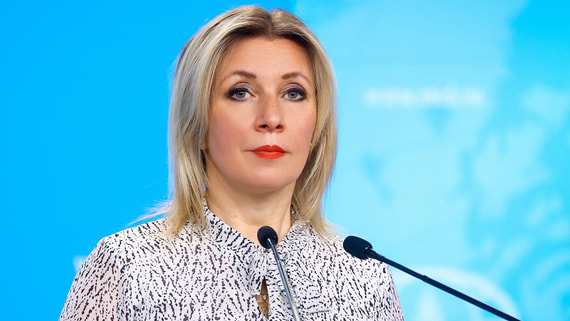Russia will seek condemnation of Estonia’s plan to deprive Russian citizens of the right to vote
[ad_1]

Russia will seek condemnation by international structures of the plans of the Estonian authorities to temporarily deprive the citizens of Russia and Belarus of the right to vote in municipal elections. This is stated in comments Russian Foreign Ministry spokeswoman Maria Zakharova.
“We will closely monitor the development of the situation, seek from relevant international structures to condemn the openly racist plans of the Estonian authorities and prevent their implementation,” the message says.
Zakharova also added that the unconstitutionality of the bill is noted by both Estonian opposition politicians and partners in the ruling coalition. However, the law is likely to be pushed through in Parliament, as it comes from the party of Prime Minister Kai Kallas, she said.
The bill prepared by the Ministry of Justice of Estonia became known last week. The authors explained the need for its adoption by the fact that Tallinn “is not able to ensure the freedom of Russian citizens from the influence of their country of citizenship”, transmitted ERR radio. At the same time, the document noted that it may contradict the provisions of the country’s constitution, therefore, the state court will have to clarify the controversial issues. As noted by ERR, the next local government elections will be held in 2025.
Also last week, the Office of the UN Commissioner for Human Rights considered Estonian standards to be contrary to international human rights treaties. In particular, the document expresses concern about how the education reform will affect the Russian-speaking population of the country.
The standards in question were introduced by a law passed by the Estonian Parliament in December 2022 by a majority vote. From 2024 to 2025, kindergartens and elementary grades of schools will switch to Estonian, and until 2029-2030. the share of lessons in the state language will have to reach at least 60%. Also, from 2024, teachers will be required to have knowledge of the state language at the C1 level, and they will be able to “carry out educational and educational activities in a language other than Estonian” only with the permission of the government.
Estonian Foreign Minister Margus Tsahkna, in turn disagreed with the conclusions of the UN Special Rapporteurs, stating that the country’s transition to Estonian-language education does not violate the rights of national minorities.
[ad_2]
Source link








